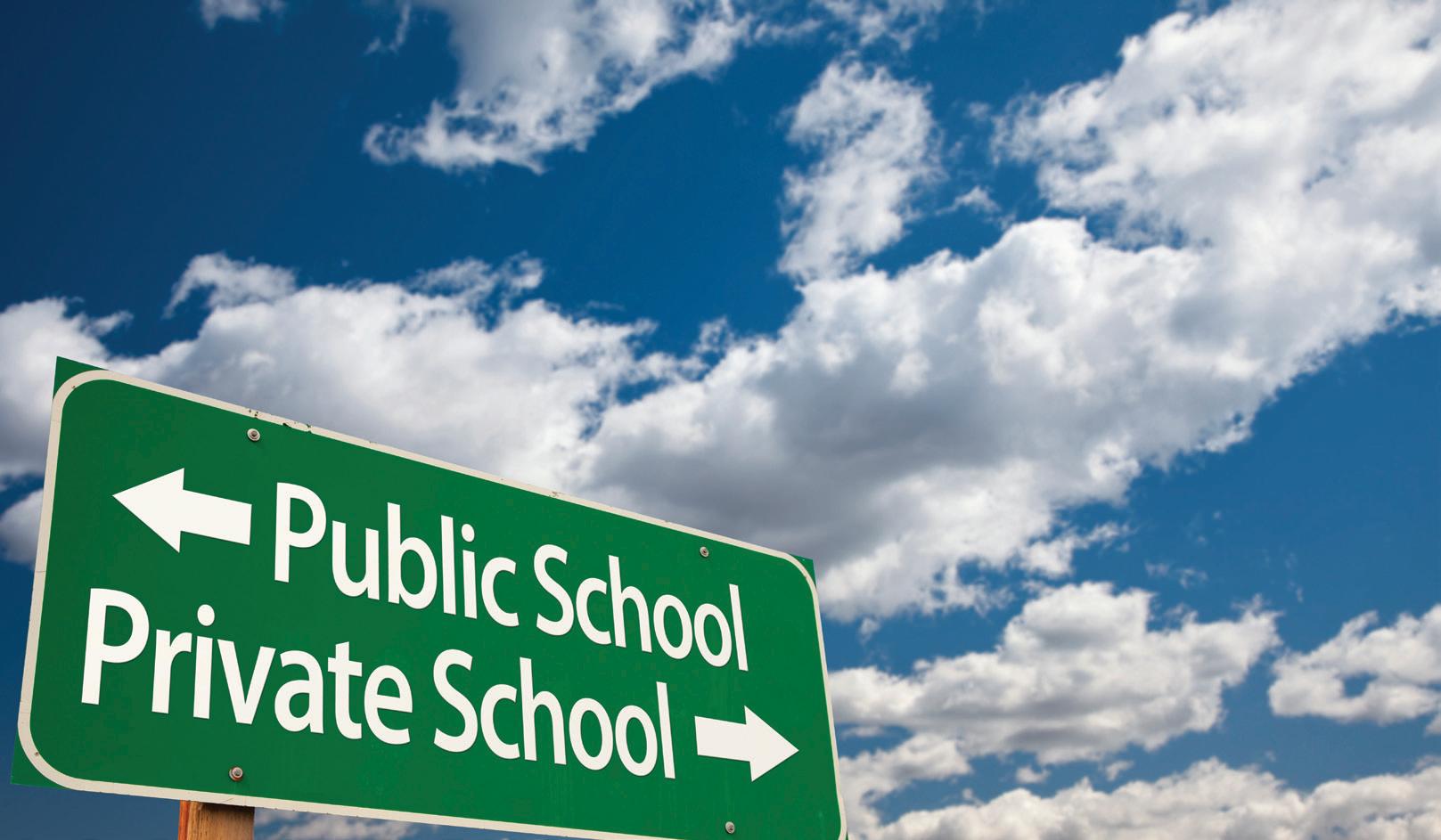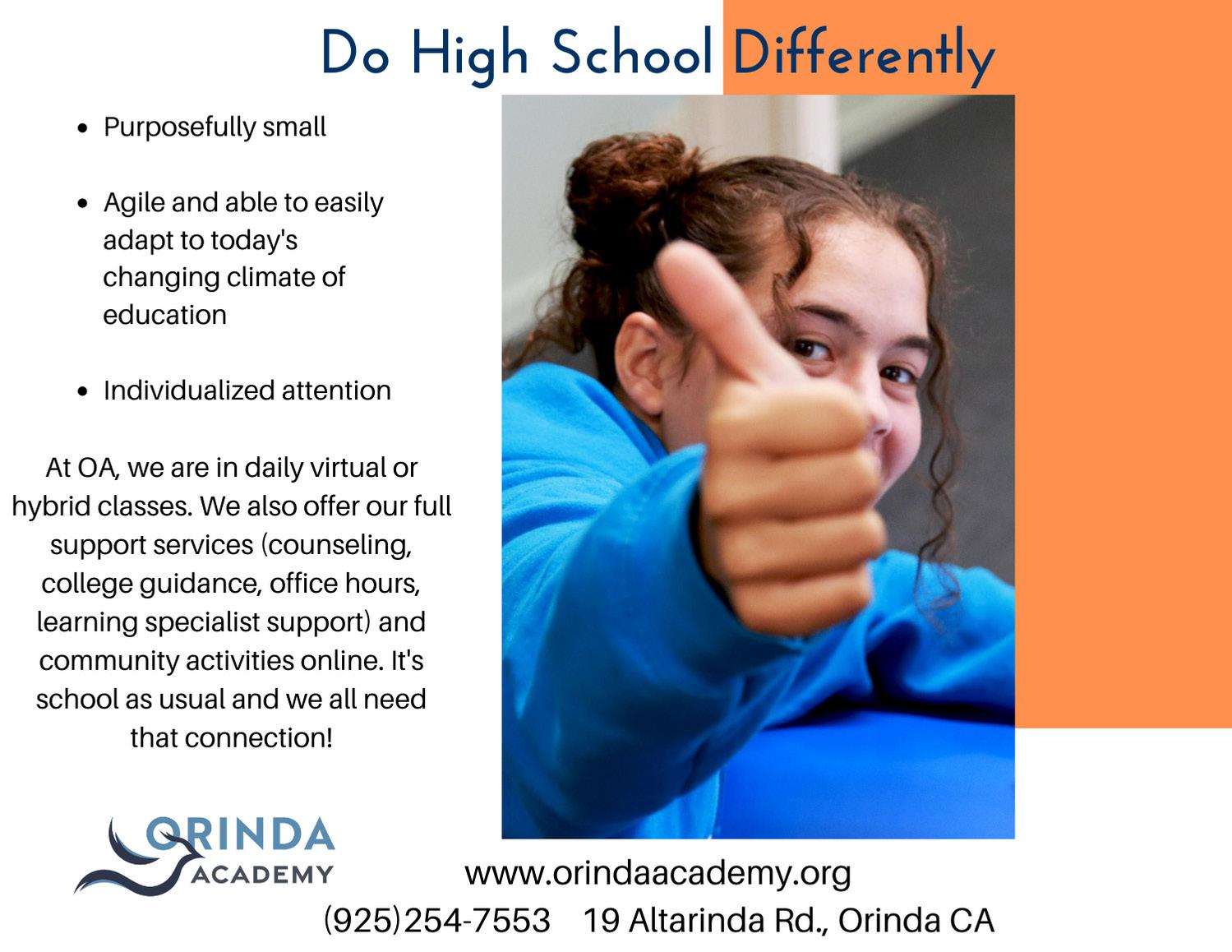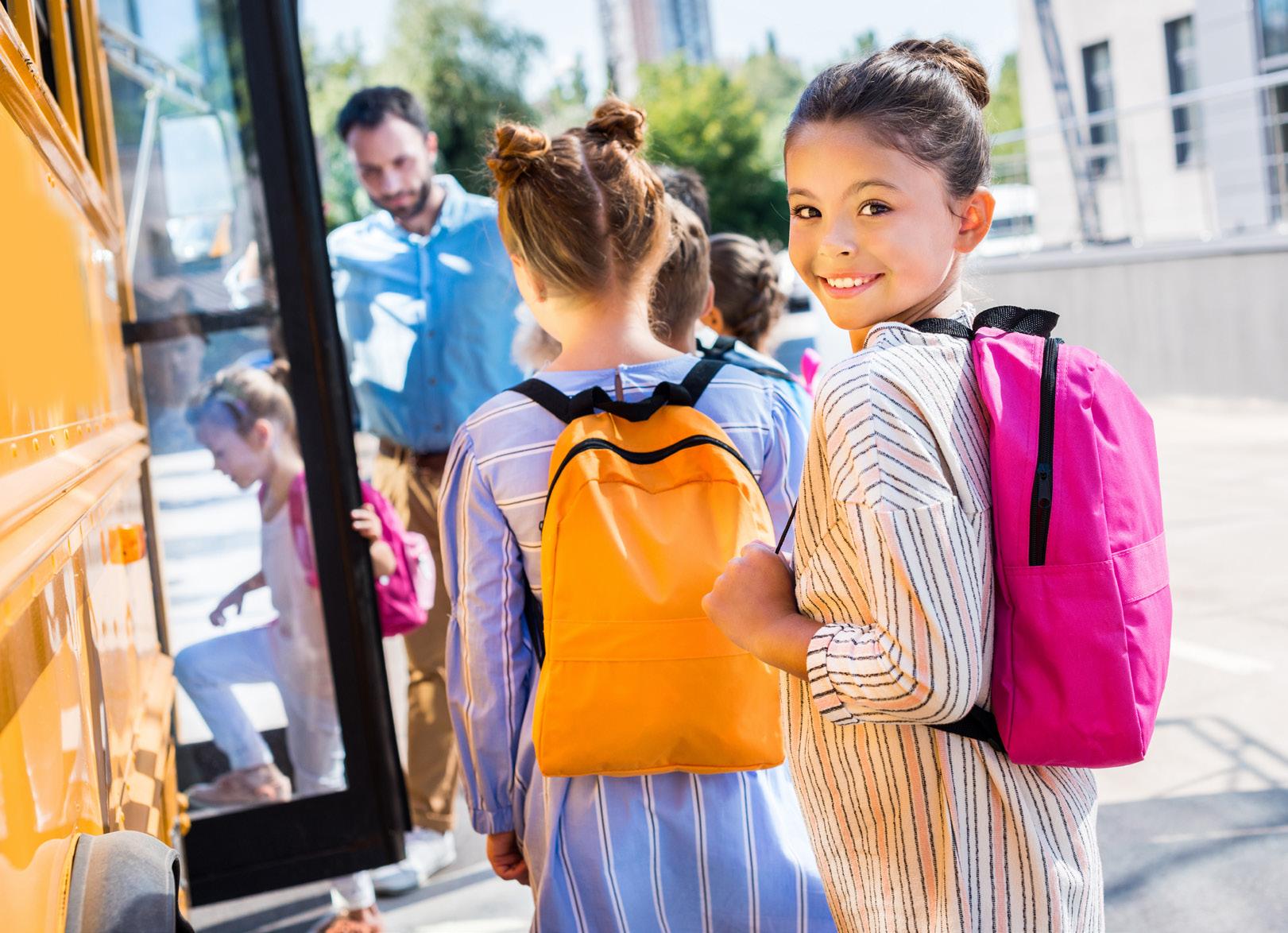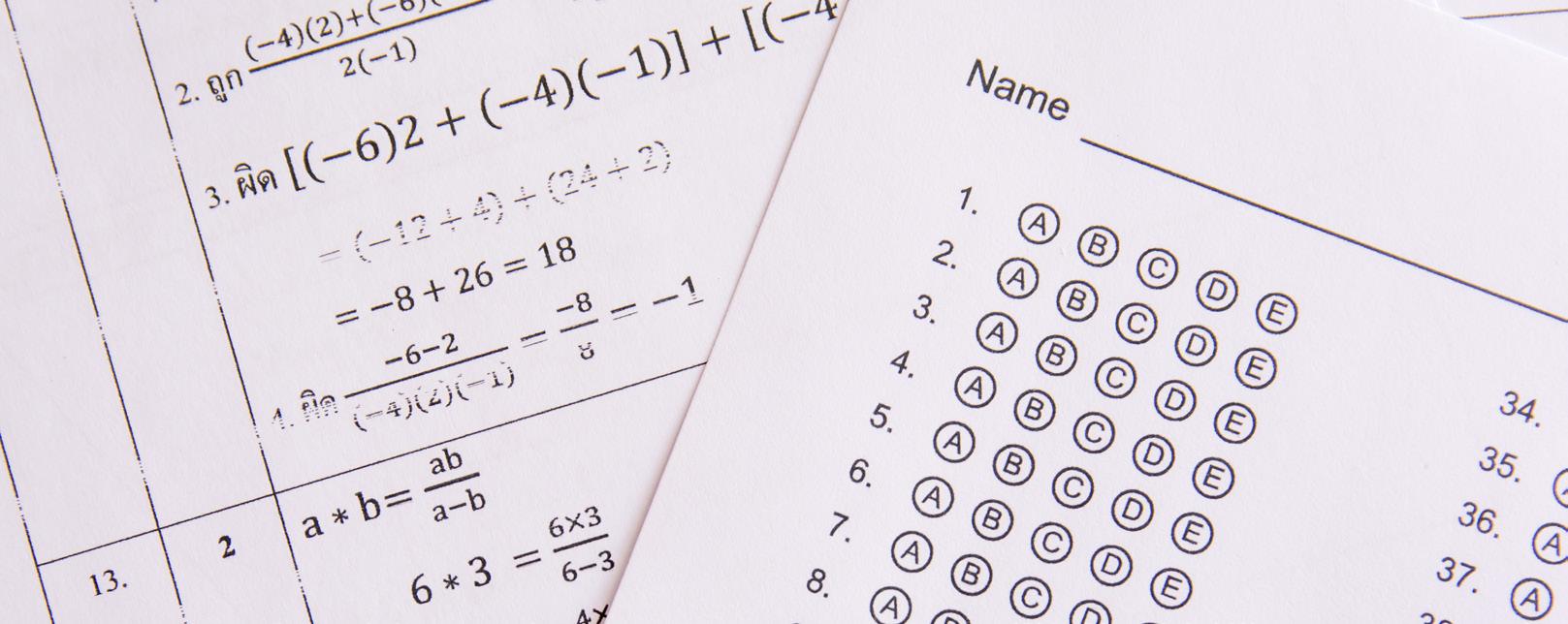
2 minute read
Why Consider Private School?
Many parents feel that their children will thrive better in what they believe is a smaller, safer environment with more room for personal attention. And while public schools must follow a curriculum heavily influenced by state standards, private schools have more freedom to customize lessons to students’ individual ways of learning.
Private schools can also point to low studentteacher ratios, freedom from state standards and testing, and lots of extras like music, foreign languages, and art that are underfunded or nonexistent in public schools. Rest assured, promise school experts, there is a school out there to suit every child.
There are two primary sorts of private schools— independent schools and parochial schools.
Independent schools are defined as nonprofit private schools with their own governing board of trustees. While most people commonly refer to independent schools as private, lumping them in with parochial
and for profit schools, they are distinct because they are nonprofit and self-governing.
Parochial schools, where tuition is typically one-third that of independent schools, offer traditional instruction and have solid reputations. Families who are “in-parish,” that is, who live within the schools’ official parish boundaries or volunteer and participate regularly in the parish, get first priority. Otherwise the application procedures are similar to independent schools. >>>
When considering private school education, think about these benefits as outlined by the Independent Schools of the San Francisco Bay Area (www.issfba.org):
High academic standards
Independent schools nurture intellectual curiosity, stimulate personal growth, and encourage critical thinking. A larger percentage of students at independent schools are enrolled in advanced courses than in public schools.
Small classes and individual attention
Independent schools have low student-teacher ratios that encourage close connections with students. The median ratio in schools that are members of the National Association of Independent Schools in 2019–2020 was 8.5 students to 1 teacher.
Excellent teachers
Educators usually teach in their areas of expertise and are passionate about what they do. With more autonomy within the classroom, teachers are able to develop a full understanding of how each student learns and what motivates and inspires each individually.
Greater likelihood of a student completing a bachelor’s or graduate degree education.
Independent schools nurture not just students’ intellectual ability and curiosity but also their personal and social growth and civic conscience. Opportunities extend well beyond the classroom to athletic competitions, artistic pursuits, and school leadership experiences.
Inclusiveness
Schools maintain diverse and vibrant student communities and welcome and respect each family. In 2019–20, students of color were 33 percent of total independent school enrollment nationally.
A community of parents who actively participate in their children’s education
Independent schools promote regular communication among students, parents, and teachers to ensure everyone is working toward the same goals for the student.
The opportunity to choose a school with a mission
You can select a school whose philosophy, values, and teaching approach is right for your child.










